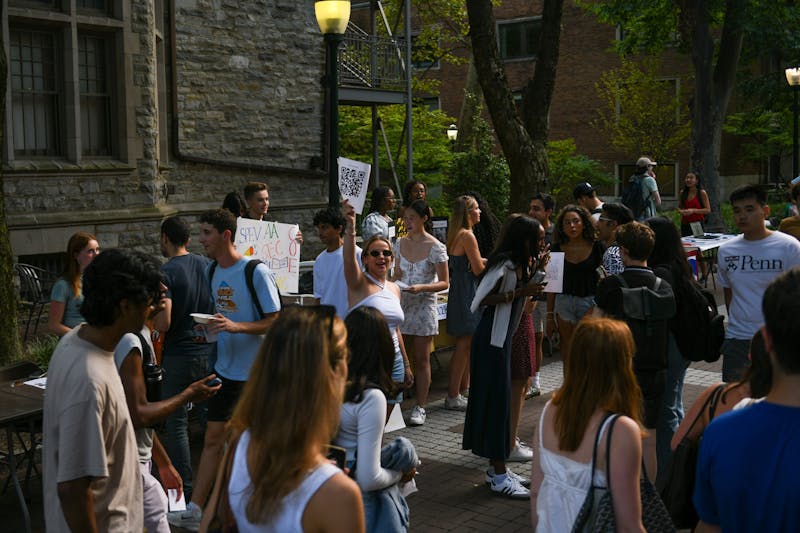The Israeli government's recent decision to open a second entrance to an underground archaeological tunnel sparked a level of violence in the Middle East unseen since the start of peace process. Palestinian police, armed with Israeli-provided weapons designed to keep the peace, fired on Israelis during the rioting. Right-wing Israelis then launched reciprocal attacks, fighting for every inch of land. The fragile peace process, which has survived bus bombings in Tel Aviv, the assassination of Prime Minister Yitzhak Rabin and the Palestinian massacre in Hebron, almost disintegrated. As a reasonably informed observer of international events, a Reform Jew and a supporter of the state of Israel, I was distraught by this latest outbreak of violence in the Middle East. My first reaction was an attempt to discuss these events with my peers. Not once did anyone bring up the violence in Israel with me. When I initiated conversation about it, only occasionally did anyone actually voice an opinion. Surely there must be Conservative or Reform Jews who have an opinion on Israel and the peace process. Why were they silent after these events? Are they simply disenchanted with the whole Middle East situation? Or do Penn students not care one iota about international events? The apathy and distaste for American politics among young people, highly evident during this election year, need not be discussed further. Yet the readily apparent collective ignorance of international events among college students frightens me. We live in an age when America is the only remaining superpower -- a country with great economic, military and political clout around the world. But we don't live in a sock; other events affects our lives, like a near-genocide ("ethnic cleansing") in Bosnia, a brutal civil war in Burundi and a power struggle in the Kremlin, where Boris Yeltsin's health has emerged as a key to stable U.S.-Russian relations. Often, we can't understand these international events or comprehend why they are important. But caring only about ourselves would be a crime. We are just a generation removed from the 1950s, when school-sponsored air raid drills and Sen. Joseph McCarthy's witch hunts for suspected Communists in the federal government were making news. In 1962, a tense showdown between Kennedy and Khruschev almost plunged the U.S. and the U.S.S.R. into nuclear war. In the 1970s, the draft sent men my age to Vietnam and disputes with Middle Eastern oil barons resulted in the rationing of gasoline. Foreign policy matters like these have cost America lives, money and international prestige. But the U.S. in 1996, whether we like it or not, is a principal player in international politics. Our nation's inevitable role on the world stage may involve many of us someday -- as soldiers, diplomats, politicians or businessmen. There is a simple solution to the prevailing apathy and disinterest in international affairs: Reflect on how much sweeping political change has occurred during our short lifetimes. In the last decade, apartheid fell in South Africa, following the collapse of Communism in the former Soviet Union and eastern Europe. Rabin and Palestine Liberation Organization leader Yasser Arafat, once bitter enemies, shook hands in the White House Rose Garden. These events seemed unthinkable not too long ago. By failing to look at the big picture, we are unable to put everything going on in the world into perspective. To continue progressing toward peace and democracy around the globe when it is our generation's turn to lead, we must become more cognizant of the importance of international events. Then we will be more enlightened people in the present and more capable leaders in the future.
The Daily Pennsylvanian is an independent, student-run newspaper. Please consider making a donation to support the coverage that shapes the University. Your generosity ensures a future of strong journalism at Penn.
DonatePlease note All comments are eligible for publication in The Daily Pennsylvanian.







